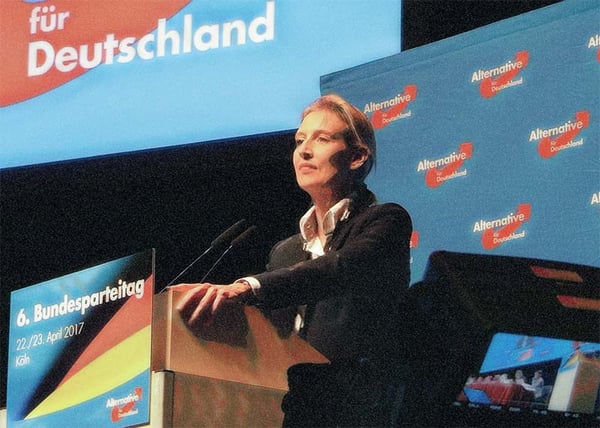The far-right etiquette manual
In an attempt to present themselves as a credible governing party, Germany's far-right nationalists, the AfD, have imposed a code of conduct on themselves. If they want to enter a coalition with the conservative CDU in the next federal elections, scheduled to take place in 2029, the party has to adopt a different tone, says co-party leader Tino Chrupalla.
You might remember the AfD corruption scandal discussed before the European elections, where lead candidate Maximilian Krah was under scrutiny for financial links to Russian oligarchs and went on trips to China with expenses covered by Huawei.
The new code of conduct features rules for the ”prevention of bribery” and ”avoidance of conflicts of interest”, aiming to enhance the party's ”political effectiveness and credibility”. It also targets more image-related aspects: no more heckling, no more sloppy clothing, and no more conspiratorial talk of ”German dominant culture”. By moderating their appearance in parliament, the AfD wants to appeal to the mainstream voter base.
The nationalist strategy of 'normalising through self-discipline' is less homegrown than imported. In France, Marine Le Pen's Rassemblement National (formerly Front National) underwent a deliberate process of ”dédiabolisation”, toning down its rhetoric and expelling controversial members. This rebrand led to significant electoral gains, with RN topping the 2024 European Elections in France.

Without disruption and shouting matches in the Bundestag, it seems like the newly self-flagellating AfD wants to shed itself of everything we know it for. There is a certain irony to parties built on provocation suddenly seeking moderation. Perhaps it is a sign that the pool of voters drawn to hardline ideas is limited, forcing far-right parties to make cosmetic changes in order to grow.
